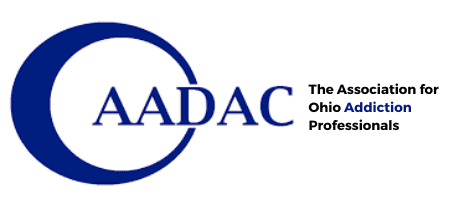Hall of Fame

Sister Ignatia Gavin.
While in charge of patient admissions at Akron’s St. Thomas Hospital in 1935, Sister Ignatia Gavin, CSA worked with Dr. Bob Smith of Alcoholics Anonymous to admit the first alcoholic patient under a diagnosis of acute gastritis. This admission resulted in St. Thomas Hospital becoming the first hospital in the world to treat alcoholism as a medical condition. St. Thomas Hospital eventually became the first religious institution to recognize the right of alcoholics to receive hospital treatment, even going so far as to open a hospital ward for alcoholics in 1939. In 1952, Sister Ignatia was transferred to St. Vincent Charity Hospital in Cleveland, where she was instrumental in the development of Rosary Hall Solarium, an alcoholism recovery wing. Known as the “Angel of Alcoholics Anonymous,” Sister Ignatia also contributed to the implementation of the first Al-Anon program. She retired in May of 1965 and passed away in April of 1966. She will always be remembered for her compassion and humility, as well as her dedication to the treatment of alcoholism as a medical condition.
Dr. Bob Smith.
Dr. Bob Smith became friends with Sister Ignatia during the 1930s. As a result of their friendship, Sister Ignatia began admitting Dr. Bob’s alcoholic patients to St. Thomas Hospital, where she was the current Director of Admissions. Sister Ignatia and Dr. Bob ultimately erected the first hospital ward for the treatment of alcoholism in 1939 at St. Thomas Hospital. Known as the “Prince of Twelfth Steppers,” Dr. Bob helped more than 5,000 alcoholics before his death in 1950. At the time of his death Dr. Bob, who was a recovering alcoholic, had enjoyed 15 years of continuous sobriety.
Mr. James Wolfe.
Mr. James Wolfe has over 30 years of experience in the field of addiction. During the 1980s, Mr. Wolfe coordinated the formation of outpatient programs in 10 different counties for the Southern Ohio Regional Council on Alcoholism. He also created agencies that now function as The Counseling Center, Pike County Recovery Council, Family Guidance Center, and Family Recovery. His other contributions to the field include several years spent extensively training hundreds of counselors on addiction as a disease, advocating for addicted people, and starting the Loved Ones group in Highland County. Presently, Mr. Wolfe continues to aid his community through providing free help to families through the church that he attends.
Mr. Rembert Glass.
Mr. Rembert Glass acted as the first Director of The Counseling Center. Mr. Glass was incredibly instrumental in promoting and bringing the disease model of alcoholism to the Tri-State area, as well as training numerous staff and counselors in understanding alcoholism as a disease. A strong proponent of the 12-step recovery program and the importance of linking treatment centers to Alcoholics Anonymous as a component of treatment, Mr. Glass designed a power treatment option that diverted patients from psychiatric hospitals to full recovery centers. Mr. Glass’s other donations to the addiction field include founding the Scioto County Counseling Center, recruiting recovering addicts into the treatment field, and acting as a very active counselor. He passed away in 1988, leaving behind a legacy of service and advocacy.
Orca House
The founding Board of Trustees of ORCA House (nominated by ORCA House) consisted of Basil F. Ramey, Esq.; John L. Bailey; Johnnie Marshall; Ruth Hawkins; Gertrude Overton; and Alfonso Holman. All of the members were actively involved well before the inception of ORCA House on April 21, 1950 and for many years following. The personal effort and fierce dedication of these six individuals contributed to the continued growth and success of ORCA House.
Mr. William "Bill" Findley.
Mr. William “Bill” Findley has been actively involved in the development of treatment and recovery programs since 1968. In 1968, he became the Director of Lorain County Council on Alcohol and Drug Abuse Services, and for 10 years beginning in 1972, he served as the Director of Catholic Charities Alcohol and Drug Program – Matt Talbot Inn. Mr. Findley then went on to found or co-found and develop a number of grassroots recovery organizations such as the SOS Club and The Giving Tree, which provided direction and hope to those who could not access care in any other way. These early efforts, along with the creation of the 317 Board, which Bill also played a significant role in establishing, resulted in his founding of Compass House in 1989, which ultimately became the largest treatment agency in Lorain County. Mr. Findley acted as Director of Compass House until his retirement in 1996. With high standards for care and compassion, Mr. Findley has left behind a legacy of Compass House, Compass Alumni, and countless lives and families saved.
Contact OAADAC
Send Us a Message
Let us know if you have any questions about how we help. We will be glad to talk to you.
